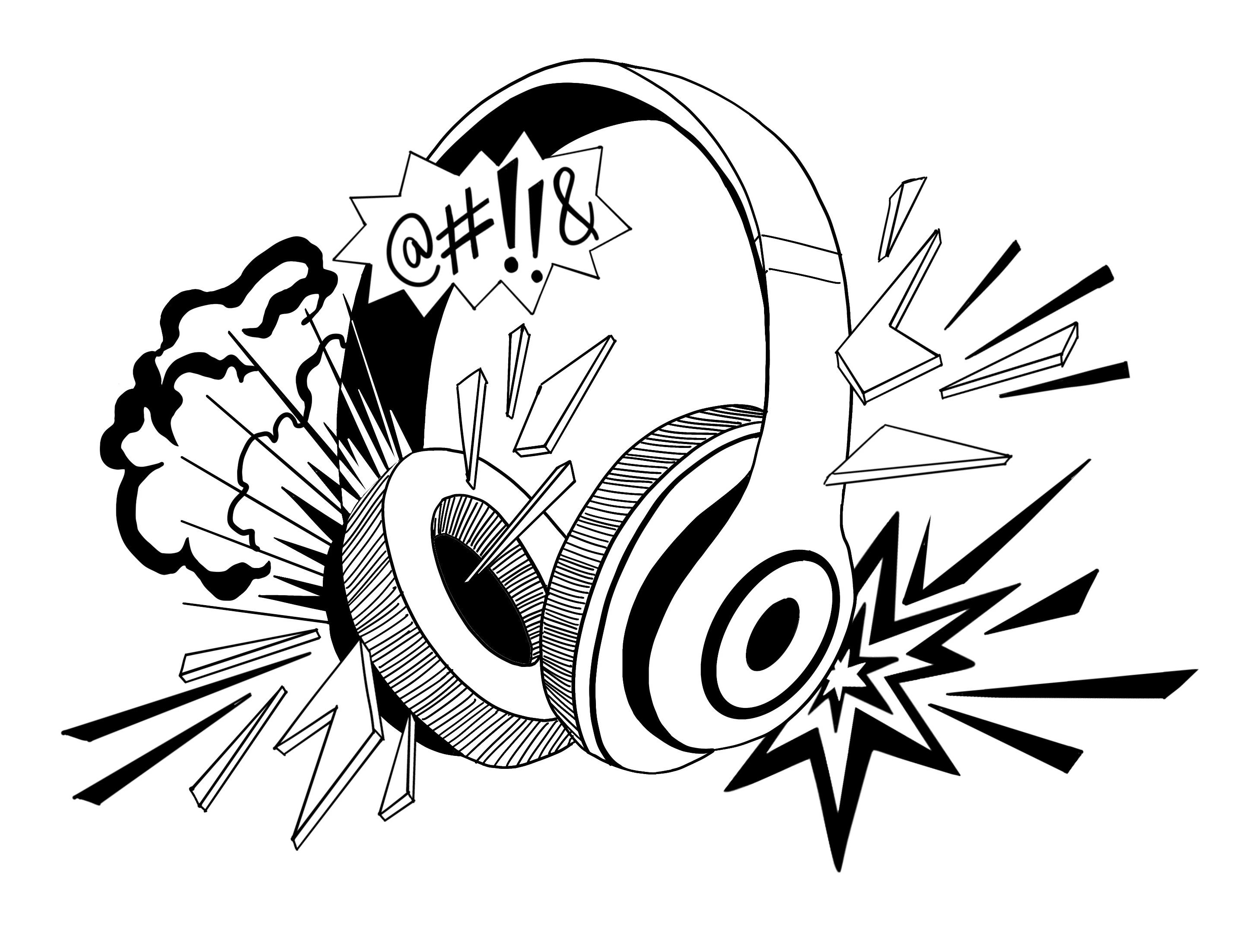
2 minute read
Graphic Content in Rap Music Affects Teens Graphic Content in Rap Music Affects Teens
by ELLIE MCCUSKER
In the past 40 years, hip-hop has emerged as a mainstream and highly influential genre of music. According to The Atlantic’s “1991: The Most Important Year in Pop-Music History,” rap songs have dominated the Billboard Hot 100 charts since the 1990s. As rap grows in popularity, so does pushback toward the genre’s common themes of profanity, drugs and violence. At Menlo, 14.1% of all students reported that hip-hop is their favorite genre, raising the fear amongst parents that lyrics romanticizing illicit activities will lead to their normalization among teens.
Advertisement

“I just did some molly for the hell of it, I’m hyphy, and I’m drunk, I’m doin’ hella shit” are lyrics from “Order More” by G-Eazy, one of the many popular rap hits that reference casual substance abuse. According to the National Library of Medicine’s study “A High Note: Drug Misuse in Popular Rap Music,” drug abuse in the past three decades has increased alongside the praise for rap music. The study gathered that 72% of popular rap songs contain references to substances, and 50% of songs included illicit drug references. The frequency of drug mentions in rap music might create a false sense of normalcy and downplay the drug’s potential harms to listeners.
Another source of controversy in rap is frequent profanity use. “Fuck n***as, I don’t trust n***as,” is the opening line to “F.N” by Lil Tjay, one of many rap songs that use the N-word repeatedly. Many artists in the rap community believe the use of profanity in their music is empowering. For example, rapper Solange Knowles stated that her song “F.U.B.U.” (“For Us By Us”) allows Black artists to use the N-word to regain some power and authority. “As a Black person in America, you have so many limits at every turn […] being able to say the N-word gives Black people just one small bit of power,”
Knowles told UNPLUGG’D MAG. Similarly, UNPLUGG’D MAG reports that Jay-Z only condones Black people singing the N-word in his songs because Black culture has repurposed the slur into a term of endearment. Contrastly, rappers such as Schoolboy Q encourage non-Black fans to use the N-word at their concerts, an act that other Black artists tend to find extremely insensitive and harmful.
“I wake up in the morning, I got murder on my mind, AK-47’s, MAC-11, Glocks and .9s” is the chorus of “Murder on My Mind,” by Y.N.W. Melly, a hit rap song that primarily emphasizes violence as vengeance in the “thug” community. Many rap lyrics containing mentions of suicide, violence and sexual assault contribute to teens taking part in violence at a younger age, according to the American Academy of Child and Adolescent Psychiatry. A study from Emory University concluded that teens 14-18 who listened to rap music 14 hours a week “were three times more likely to get in a fight with a teacher, 2.5 times more likely to find themselves getting arrested and 1.5 times more likely to take part in illegal activities.” On the other hand, rap’s violent lyrics reflect the harsh reality experienced in many urban communities. Teens who relate can enjoy the feeling of community rap provides them. However, not all rap artists encourage selfdestructive behavior. For example, in 2017, while discussing the meaning of his hit song “HUMBLE.” Kendrick Lamar said, “My whole thing is to inspire, to better people, to better myself forever in this thing that we call rap.” Teenagers are constantly under the influence of the media they consume. Because studies suggest rap could affect teens negatively, it is essential to be cognizant of the weight of words individuals listen to, and how lyrics affect behavior.










